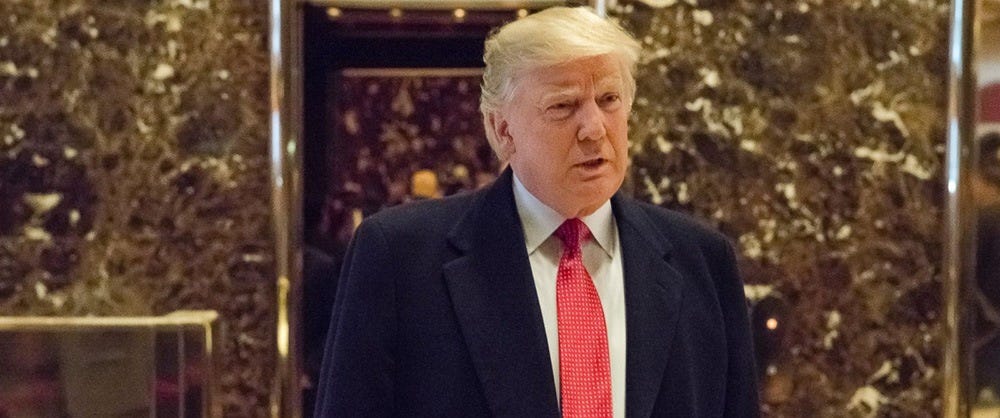We don't really know what Trump thinks about vaping, it wasn't a major Presidential campaign issue. But we do know that he hates Government regulation: during the campaign he said that around 70% of Federal regulations could go under his Presidency. We also know that Trump allies in Congress like Duncan Hunter the second Congressman to endorse Trump for President back in February are big supporters of the vaping community
So we don't know whether getting the deeming regulation off the books is on the Trump list of priorities. If it is, we don't know how high up it is on that list. But the political mood music seems to be on the side of getting rid of the rule altogether, or at the very least neutering it to an extent. The question is, how would that get done in the labyrinthine world of DC politics?
As we'll explain, getting a date change through an omnibus spending bill is still the most likely solution for now, and the one that vapers should watch most keenly. There may be more radical options, but these are less likely to occur in practice, at least at this stage.
One option for a new administration wanting to undo regulations laid by the administration before it is the Congressional Review Act (CRA), which allows majorities in both houses of Congress to use expedited procedures to disapprove recent regulations.
Under the CRA, Congress has 60 working days after a final rule is issued to review it and send a "joint resolution of disapproval" to the president. For the rule to be taken off the books, the President has to sign this disapproval hence why the CRA is only really useful for regulations that were executed during the final stages of a dying Presidency: Presidents are highly unlikely to disapprove of Regulations they recently made.
In fact, in the 20 years since the CRA was enacted, only a single regulation has been overturned using its powers, and that was a rule made by a lame duck Clinton and disapproved by a newly elected Bush.
Due to Congressional recesses, holidays and weekends, 60 working Congressional days usually translates into six months or so in real time. And for rules issued with less than 60 working days left in the current Congress, the 60-day review clock will start over in the next Congress.
This means that when the new Congress takes office, it will have 60 working days to review regulations from the final 60 days of the last Congress.
According to a review from the Congressional research service, only regulations made before 16 May will be subject to a possible CRA vote.
Unfortunately, this last fact is not good for vaping. The Deeming rule was published in the Federal Register on 10 May "just six days before the deadline" so it can't be struck down using the Congressional Review Act once the new administration and Congress take office. (This must have occurred to FDA when deciding on the date to publish the rule in the Federal register).
So unless some brilliant legal minds manage to justify extending the period during which a motion of disapproval can be filed, this pathway is unlikely to succeed with the Deeming rule.
A less ambitious option would be ensuring that something like the Cole-Bishop amendment is introduced and passed into the next major funding bill, which is likely to happen in around March or April. It was initially hoped that this language could find its way into an appropriations bill passed in December but, given the unexpected election result, Congress instead passed a continuing resolution, which will keep the government funded until the Spring when a Republican controlled Congress is likely to pass a full appropriations bill.
If Cole-Bishop, or similar language, were to be included in the Spring bill, this would move the so-called "predicate date" for products deemed to be tobacco products under the rule. In practice, this would mean products that were marketed on 8 August 2016 would not need to apply to the FDA for a Premarket Tobacco Authorisation (PMTA), which is considered the part of the rule that would shut most companies down.
Applying for a PMTA would cost millions of dollars per product, immediately shutting down 99% of the industry. Even those who filed a PMTA would be unlikely to succeed for flavoured products given that the same FDA that wanted to ban flavours back in May will be reviewing them.
FDA also indicated that open systems would not be able to obtain a PMTA.
While many elements of the rule would still stand, such as mandatory health warnings, ingredient listing and HPHC reporting: getting rid of PMTA requirements for those products on the market before 8/8/16 would save the industry, although it would stifle innovation particularly on the side of devices, and hand a huge advantage to incumbent players at the expense of potential new innovators. If the CRA act won't work, passing Cole Bishop must be seen as the critical first step.
A "Vapour Products" bill:
The kind of legislative action that vapers would prefer and the kind that would do the most good would be a standalone bill regulating vapour products for what they are, not as tobacco products. However, it is seen as extremely unlikely to ever happen, a pipe dream.
Unfortunately, unless the bill in question in one that Congress has to pass (like a funding bill to which a policy rider like Cole-Bishop is attached), or one that has bipartisan support, it is unlikely to make it through the Senate even if it were to pass through the House.
One of the basic rules of the Senate allows for unlimited discussion and debate. As long as someone wants to talk, discussion on a bill must continue. No vote can be held on a bill until all discussion/debate is closed. If even one person wants to keep talking, debate on a bill continues.
The only way to make that person stop talking is when 60 Senators vote to end debate. This is called a cloture vote (cloture is from a word meaning to close off or bring to an end).
Practically, what this means is that in a Senate where one party cannot carry 60 votes, the minority can (and frequently does) simply state that it will refuse to vote for cloture, thus making it impossible for a bill to pass. The Republicans have a majority of two in the Senate, a far cry from what they would need to push their agenda through. So, Democrats in the Senate could simply refuse to vote for cloture, killing any liberalisation of vaping products stone dead. However, they can't do that with an appropriations bill: if they do, the government will cease to function as it is starved of funding.
In conclusion, it's clear that the two most superficially attractive options seem to be the most distant. With time ticking away until August 8 2018, when the industry would effectively cease to exist, it's important that efforts are made to get at least the interim relief of a date change as soon as possible next year.






Leave a comment
This site is protected by hCaptcha and the hCaptcha Privacy Policy and Terms of Service apply.